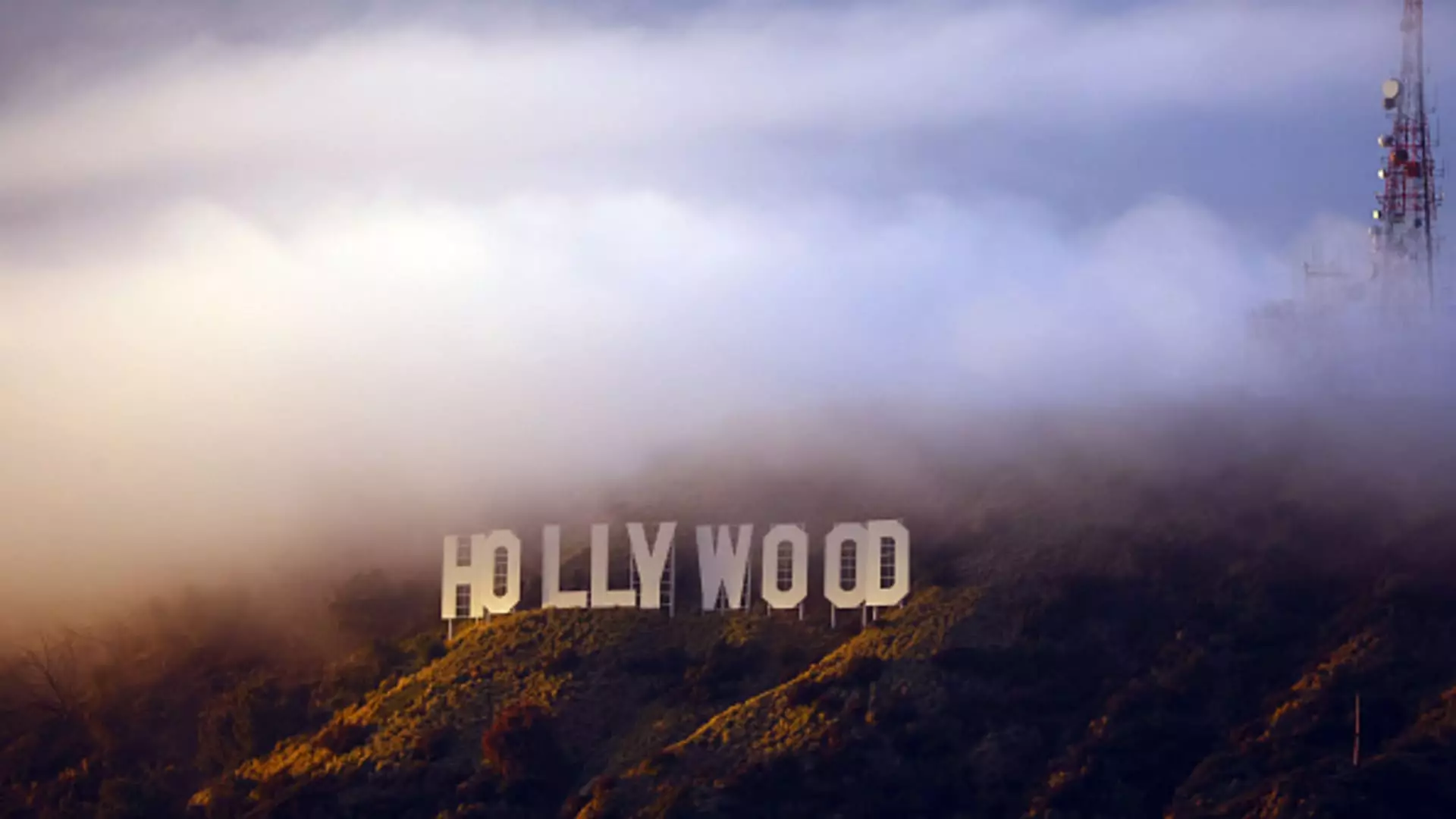The film industry has long enjoyed a symbiotic relationship with Canada, often referred to as “Hollywood North.” This partnership has thrived thanks to competitive tax incentives and a highly skilled workforce. However, the recent announcement by former President Donald Trump regarding tariffs on Canadian goods has ignited concerns among Hollywood insiders about the future of this relationship. These tariffs could not only disrupt the economic dynamics that have made Canada a preferred production hub but could also trigger retaliatory actions that may further complicate international collaboration in the entertainment sector.
On a fateful day, Trump’s administration unveiled plans for 25% tariffs on numerous goods originating from Canada and Mexico, coupled with a 10% duty on Chinese products. This move, viewed through the lens of Hollywood, poses a significant threat to the production budgets that are already under strain. Many in the industry worry that inflated costs on imported materials, ranging from specialty glass to textiles for costuming, will squeeze budgets even tighter. While many studios rely more on local sourcing for their needs, such as lighting and cameras, the ripple effects of these tariffs could still prove detrimental.
Experts indicate that Hollywood productions frequently lease equipment rather than purchase it outright, allowing for some insulation from the spikes in material costs. However, the concern remains that a broader economic downturn driven by reduced consumer spending could ultimately affect box office sales. If consumers decide to prioritize essential expenses over entertainment, the influx of capital that sustains the industry could dwindle.
Canadian Prime Minister Justin Trudeau was quick to respond to Trump’s tariffs, promising an immediate and strategic retaliation. This back-and-forth could set off a series of escalations that eventually encroach on the film industry. If Canada were to rescind the enticing tax credits that have attracted countless American productions, the financial motivators that have kept studios flocking north could dwindle, leaving studios to reconsider their filming locations.
Such measures could cause Hollywood to redirect its gaze elsewhere in search of new, friendlier territories for filming. While some experts believe that the longstanding ties and mutual benefits of working together can weather this storm, the potential repercussions of a trade war cannot be ignored. The film industry may experience a decline not just in production efficiency but also in revenue as studios assess the feasibility of future projects against the backdrop of escalating costs.
Perhaps the greatest threat posed by Trump’s tariffs is not directly within the Hollywood landscape but rather in consumer behavior. With expectations of higher prices on everyday goods, the likelihood increases that consumers will hold back on discretionary spending. This behavior could directly impact theater attendance and, by extension, the financial health of the film industry. Following the extensive challenges posed by the COVID-19 pandemic, including production halts and labor disruptions, the last thing that Hollywood needs is another crisis impacting its ability to attract viewers to the screens.
Industry insiders, reflecting on these challenges, express a blend of cautious optimism and palpable concern. The notion that upcoming blockbuster films could mitigate some of these challenges offers a glimmer of hope, but the real question lingers: Will audiences be willing to spend on what could easily be viewed as a luxury in times of economic hardship?
Navigating the turbulent waters created by Trump’s tariffs may be a testing journey for Hollywood, but lessons from history suggest that creativity will find a way to recover. The relationships cultivated between Canadian filmmakers and their American counterparts have proven resilient in the past, allowing the industry to adapt to various challenges. As the industry holds its breath, the hope is for a renewal of collaboration that avoids the pitfalls of a trade war, preserving the powerhouse that is Hollywood while also cherishing its ties abroad. The future may be uncertain, but the heart of Hollywood, imbued with resilience and creativity, may yet prevail.

